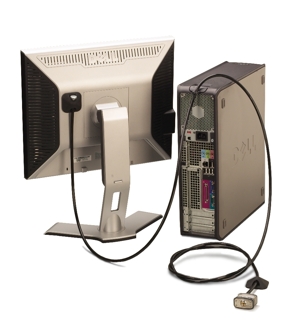The cautionary tale of Corbett’s spoof blog

 Richard Corbett is probably Britain’s best known blogging MEP, and as I’ve stated here before I reckon he’s Britain’s best MEP. Give him his due – he does put his head above the parapet and try to take on Britain’s vast array of eurosceptics, which is more than can be said for most of Labour’s MEPs.
Richard Corbett is probably Britain’s best known blogging MEP, and as I’ve stated here before I reckon he’s Britain’s best MEP. Give him his due – he does put his head above the parapet and try to take on Britain’s vast array of eurosceptics, which is more than can be said for most of Labour’s MEPs.
Yet despite being a regular blogger, Corbett does not seem to understand the blogosphere or indeed interact in any way with other bloggers. Comments are not allowed on his blog, and his posts never make reference to what any other bloggers are writing – even if other blogs (like this one) might have a similar take on issues to his. Both Nosemonkey and I, the most regular broadly EU-favourable bloggers with a UK perspective, get links in Corbett’s sidebar but he’s never linked to anything I have written, and there’s one entry from 2005 linking to Nosemonkey. Corbett’s happy to have a go at eurosceptic bloggers though.
So what happened? Some enterprising sceptics (I don’t know who exactly) have set up a spoof Richard Corbett blog. The real blog is here, and the spoof here. The spoof exactly copies the content from the real blog, but allows visitors to post comments. Gawain Towler of England Expects has received a request from Corbett to take down the link to the spoof blog – and of course posts the note from Corbett on his blog. The story has also been covered by Bruno Waterfield of The Telegraph.
What does all of this show? Writing a political blog without any opportunity for interaction can be interpreted as being patronising, and in order to cope with the fierce world of political blogging you need allies who will defend you and write positive things in your defence. Otherwise you can look shrill and separate. It’s also worth bearing in mind that the desire to comment is often much stronger than the desire for people to read others’ comments – but a clear commenting policy is a must. In short Corbett’s blog is crying out for some sort of strategy to help overcome a series of very real criticisms (that led to the creation of the spoof blog) – Matt Wardman’s ‘Starting a Political Blog’ guide would be a good place to start. The very worst thing to do would be simply to ignore these criticisms.
Personally I identify a blog on the base of two characteristics: a chronological ordering of contents and the possibility of people to leave comments. Both these characteristics have to be present for labelling it as a blog otherwise, for me, that’s just a website regularly updated…
Not a hope Google takes it down I reckon… Or at least it will be a long slog to try to persuade them. And if that was attempted then the sceptics would come back at Corbett even harder.
As for whether it takes a long time to moderate comments: it depends if you have people to help you… I’ve been the moderator of a UK politician’s blog and it took maximum 5 minutes a day. Does he not have IT savvy assistants?
As for http://www.corbett-euro.demon.co.uk/blog/ – that’s the old address of his official blog which – for some reason – has never been taken offline.
How could he also write a blog post, advertising them? He couldn’t have done them a more valuable favour.
Personally, I have no problem if he turns off the comment function of his blog. Moderating and responding to comments is a lot of work, let’s be honest.
Will be interesting to see if Richard Corbett will be able to convince Google to take down the fake blog.
BTW: Is this also a fake blog? http://www.corbett-euro.demon.co.uk/blog/
Classic. I find it particularly amusing that his post about the spoof blog will of course lead his readers to the spoof and to the conclusion that the only difference is that they allow comments on Richard’s posts and he doesn’t (as Jon points out).
As one of the commenters on the spoof site suggests, it may not be long before the spoof has more readers than the real one…So Richard, please take the wind out of their spoofers sails and open up your own blog to comment. It seems likely that the rest of us will praise you for doing so.
I have some sympathy for Mr Corbett. Spam and vitriol regrettably occupy large continents of our ‘interactive’ virtual world.
But, on balance I think you are right, Jon. If there is no opportunity to comment, a blog becomes a web site for press releases, especially if it takes an ‘ivory tower’ approach.
Some basic rules are needed for a blog likely to attract both spam and hate.
There are some examples of interactive blogs:
For instance Jean Quatremer’s blog discussions attract both quantity and quality of comment, and Mark Mardell gets a lot of discussion.
For Richard Corbett it is not enough to get the ‘fake’ site taken down, but to offer the ‘real thing’ and to start interacting.
I’d certainly agree with you. I think there’s only one political blog on my rolls who do not allow comments. Heaven knows how many readers bother logging on regularly. So come on Richard, engage with your public! If you’re bothered about the europhobic trolls you can always moderate the comments.